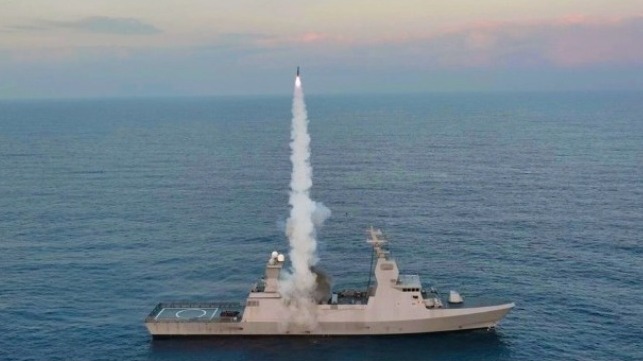Cyprus: Red Sea Security Situation May Be About to Get Worse

Last week at the annual IISS Manama Dialogues in Bahrain, Cyprus' foreign minister warned that the security situation around the waters bordering Yemen is on the brink of worsening significantly.
Foreign Minister Konstantinos Kombos observed that Cyprus, besides being located astride major global shipping routes and being closer to Yemen than to Brussels, Cyprus "has the eleventh largest commercial fleet in the world and the third biggest in the EU . . . [and] manages 20% of the world's third-party managed commercial fleet."
Cypriot-associated shipping has been attacked 12 times in the last two years, and faces an ongoing threat from the Houthi movement, which Kombos characterized as being adept at deploying low-cost, high-impact weapons systems. The Houthis had demonstrated a high degree of resilience, and were expanding their support and cooperation with Iran to include other Red Sea and Horn of Africa actors. Moreover, the Houthis focused on attacking Western interests, leaving Russian and Chinese interests unscathed - which had commercial implications, as Russian and Chinese shippers were able to take advantage of the lower costs available to those who could use transit through the Red Sea, as opposed to having to ship around the Cape. Dr Kombos' primary concern, however, was that the already-challenging situation for mariners in the Red Sea was only going to get worse.
Dr Kombos' concerns were echoed in comments made by Israel's Prime Minister Netanyahu to Israeli television prior to a cabinet meeting on November 2. He said the Houthis were a 'very big threat, fanatical in the most extreme way imaginable, and have an independent ballistic missile production capability'. Netanyahu said 'we will do whatever is necessary to eliminate this threat', alongside others posed by the Hamas, Hezbollah and Iranian remnants of the Axis of Resistance.
A characteristic of Israeli foreign policy under Netanyahu is that impending action is usually advertised in advance by a policy statement of intent. Israel for the moment is maintaining its presence of Saar-6 corvettes in the Red Sea.
While tolerance of the continuing threat posed by the Houthis is declining, within Yemen the situation is fragmenting politically. The Houthi leadership, having suffered high-ranking casualties in Israeli attacks, is nervous and suspicious. Internal feuds within the Houthi alliance have worsened. Houthi suspicions of treachery within their own ranks has led to arrests of Yemenis employed by UN aid agencies, and external threats from Saudi Arabia and a '17-nation anti Houthi coalition' are being talked up to generate patriotic unity.
Nervousness is also being displayed within the ranks of the Internationally Recognized Government (IRG). Major General Tariq Saleh - allied himself with the Houthis until 2017 - and other Southerners in leadership positions within the IRG are openly criticizing Islamist-inclined members of the IRG coalition.
In the meantime, the Houthis are maintaining their grip on the Gulf of Aden and lower Red Sea. The HMS Prince of Wales (R09) carrier strike group has not reported what threats needed to be overcome to secure safe passage recently through the Bab el Mandeb, but the stranglehold on merchant shipping remains.
The EU Operation Aspides currently maintains what remains of the Western attempts to keep the sea lanes open. The US Navy presence in the area, as of last week, appears to consist solely of the Arleigh Burke Class destroyer USS Forrest Sherman (DDG-98), as US resources and priorities pivot to Venezuela.
